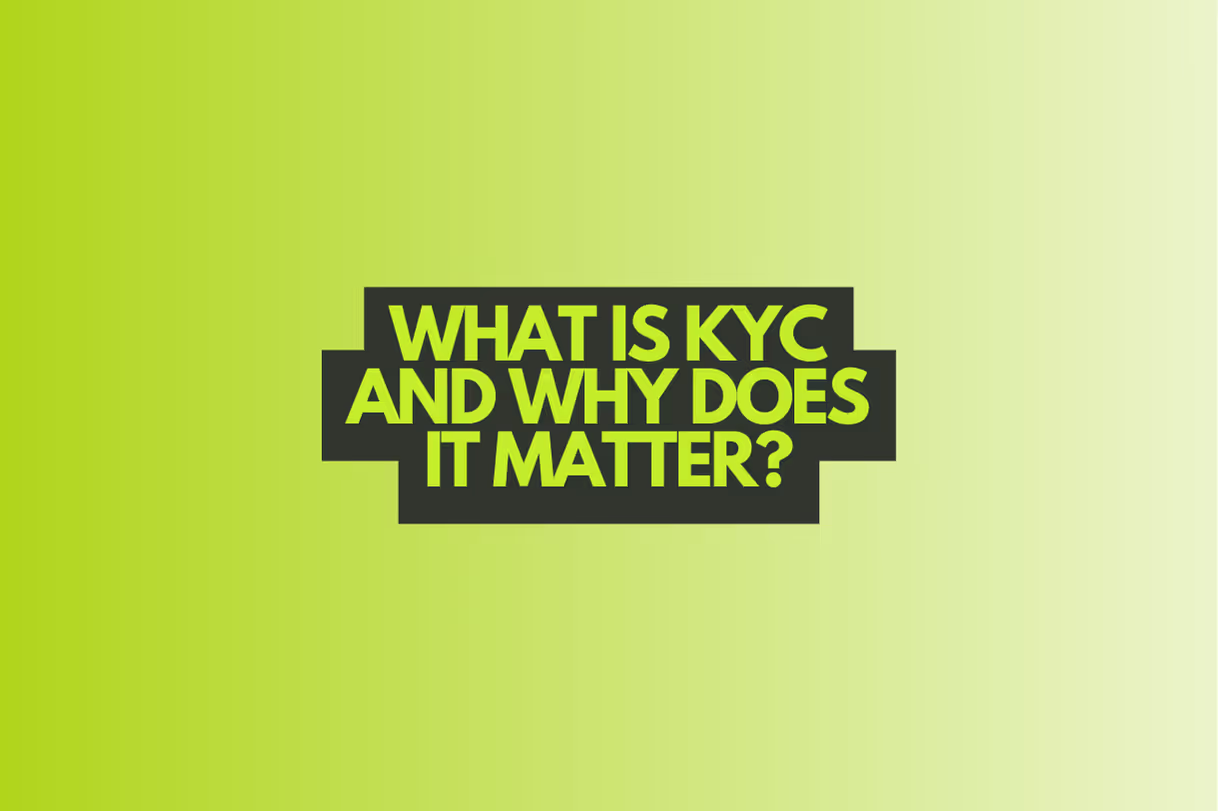
What is KYC and why does it matter?
Know Your Customer (or Know Your Client) identification is one of the first and most important components of the ongoing fight against financial crime and money laundering. Global anti-money laundering (AML) and countering financing of terrorism (CFT) directives have placed tremendous pressure on financial institutions to follow stringent verification and onboarding processes in their organizations.
In today's complex regulatory landscape, Know Your Customer (KYC) is no longer a box-ticking exercise—it’s a strategic, risk-based requirement central to any anti-money laundering (AML) framework. In an era of heightened enforcement, digital-first finance, and global trade, getting KYC right is essential to staying compliant, building trust, and protecting your business.
The stakes are high: In 2021, the HMRC issued fines totaling more than £23-million to businesses who ignored or failed to adequately comply with AML regulations, including neglecting to conduct proper risk assessments, controls and customer due diligence measures like KYC As regulators in 2025 continue to sharpen their focus on customer due diligence, businesses must ensure that their KYC programs are both robust and adaptable.
{{snippets-guide}}
What Is KYC?
KYC refers to the set of procedures that organisations use to:
- Verify the identity of customers
- Understand the nature of their activities
- Assess potential risk factors
- Monitor behaviour over time
KYC is required before entering a client relationship and continues throughout the lifecycle of the customer. It ensures that individuals and businesses are not:
- Using financial services to launder illicit funds
- Evading sanctions
- Engaging in fraud or corruption
KYC protects businesses from regulatory fines, reputational harm, and exposure to criminal activity—and contributes to the integrity of the global financial system.
The KYC Process: From Onboarding to Ongoing Monitoring
KYC typically forms a core pillar of an organisation’s AML program and consists of the following stages:
1. Data Collection
At onboarding, basic personal or business information is collected, such as:
- Full name, address, date of birth
- Government-issued identification
- Business registration numbers and ownership structure
- In some cases, biometric data (fingerprints, facial scans)
2. Verification
Collected data is verified against reliable sources, including:
- Global sanctions and watch lists (e.g. OFAC, EU Consolidated List)
- PEP (Politically Exposed Person) databases
- Adverse media screening
- High-risk jurisdiction lists
- Criminal databases and regulatory actions
Reliable KYC software—like the API-powered tools from sanctions.io—can automate these checks to ensure accuracy and efficiency.
3. Risk Assessment
Once verified, a risk profile is assigned to the customer based on factors like:
- Geography (e.g. high-risk countries)
- Nature of business or occupation
- Transaction size and frequency
- Exposure to politically sensitive environments
High-risk customers are subject to Enhanced Due Diligence (EDD) measures, such as more frequent monitoring or approval by senior management.
4. Ongoing Monitoring
KYC does not stop after onboarding. Businesses must continuously monitor for:
- Unusual transaction patterns or account activity
- Changes in ownership structure
- Inclusion in new sanctions lists
- Suspicious cross-border activity
These red flags may trigger the need to file a Suspicious Activity Report (SAR) or escalate for internal investigation.
Corporate KYC (KYB): Beyond the Individual
Just as individuals must be vetted, businesses and legal entities require verification through Know Your Business (KYB) processes. These involve:
- Collecting company registration and ownership data
- Identifying Ultimate Beneficial Owners (UBOs)
- Analysing management control and shareholder stakes
- Screening key individuals and entities against sanctions and watchlists
KYB is especially important when onboarding complex ownership structures, shell entities, or offshore firms.
Innovation in KYC: Meeting the Demands of 2025
As digital finance expands and criminals evolve, so too must compliance systems. Manual, reactive processes are no longer sustainable. Businesses now rely on KYC automation, machine learning, and real-time screening to stay ahead.
Automated KYC Solutions
Platforms like sanctions.io provide powerful tools that:
- Automate onboarding and sanctions screening
- Reduce false positives and manual errors
- Maintain compliance with dynamic AML regulations
- Enable real-time monitoring and reporting
Machine Learning & Predictive Analytics
AI-powered tools analyse large volumes of data to:
- Flag behavioural anomalies
- Detect deviation from expected transaction patterns
- Prioritise alerts for faster response
- Improve remediation by learning from previous cases
These systems not only enhance detection, but also free up compliance teams to focus on complex investigations.
Know Your User (KYU): KYC for Digital-First Finance
As fintech, crypto, and DeFi platforms grow, traditional KYC frameworks must adapt. Know Your User (KYU) takes KYC further by:
- Leveraging biometric authentication (e.g. facial recognition, fingerprint scans)
- Balancing user experience with frictionless compliance
- Integrating with digital wallets, payment processors, and blockchain systems
Digital-first companies use KYU to verify identities without disrupting onboarding.
{{snippets-case}}
Final Thoughts: KYC Is Continuous, Not One-Time
In 2025, regulators expect more than basic customer ID checks. They demand real-time monitoring, continuous risk assessments, and proactive compliance. Businesses must treat KYC as a living system—updated frequently and aligned with global best practices.
Companies that embrace automation, enrich data collection, and monitor risk dynamically will not only reduce exposure, but build trust, scalability, and operational resilience.
sanctions.io is a highly reliable and cost-effective solution for real-time screening. AI-powered and with an enterprise-grade API with 99.99% uptime are reasons why customers globally trust us with their compliance efforts and sanctions screening needs.
To learn more about how our sanctions, PEP, and criminal watchlist screening service can support your organisation's compliance program: Book a free Discovery Call.
We also encourage you to take advantage of our free 7-day trial to get started with your sanctions and AML screening (no credit card is required).



